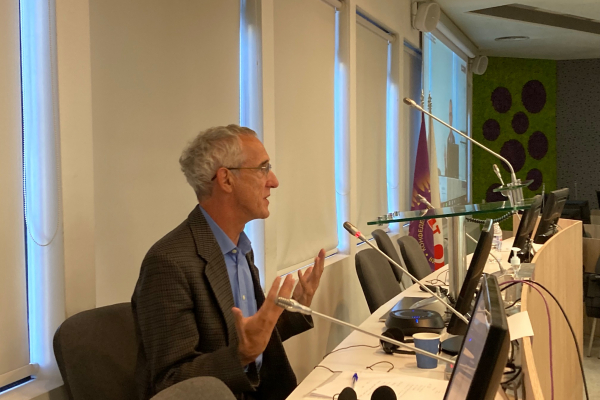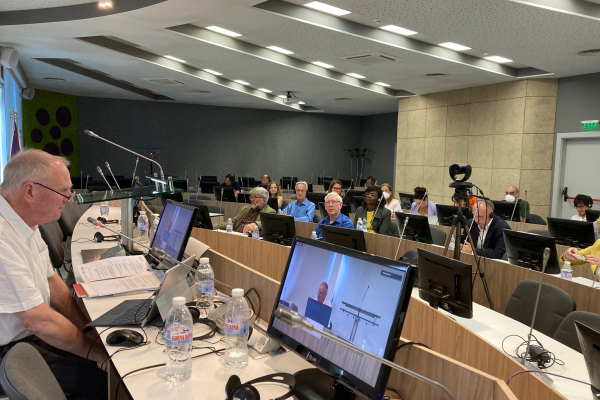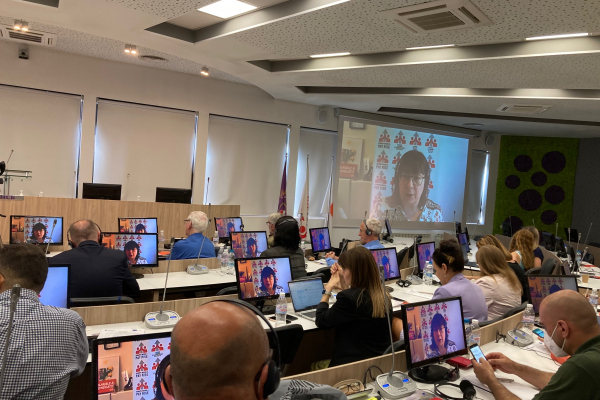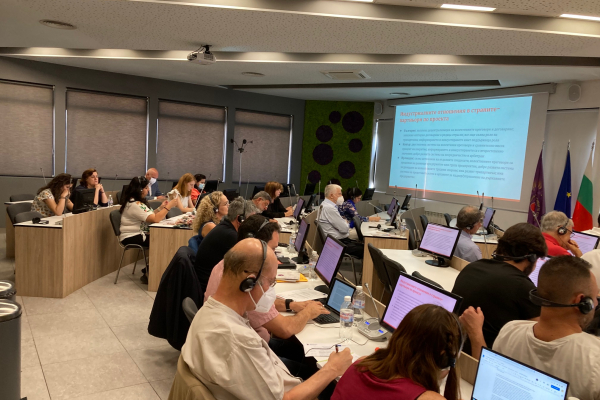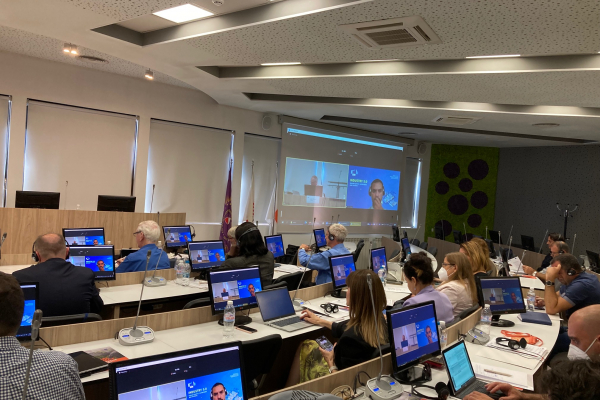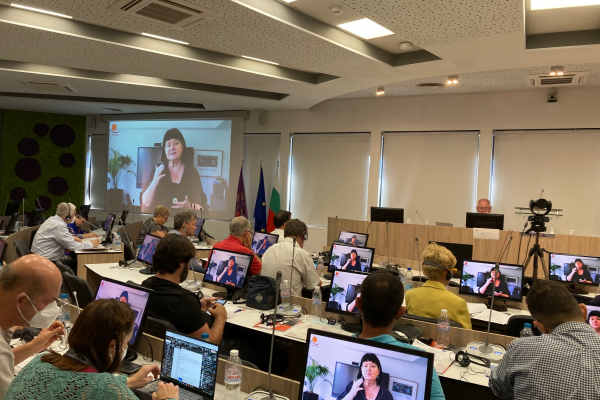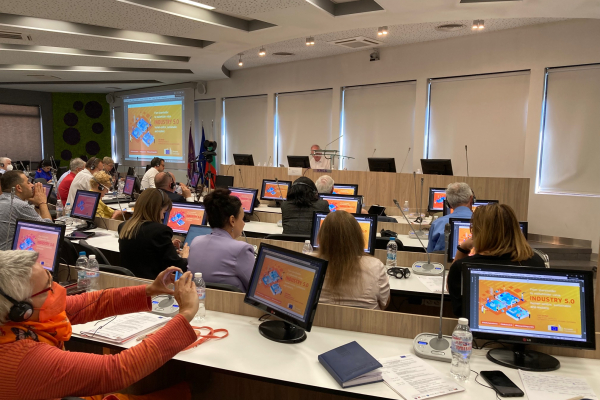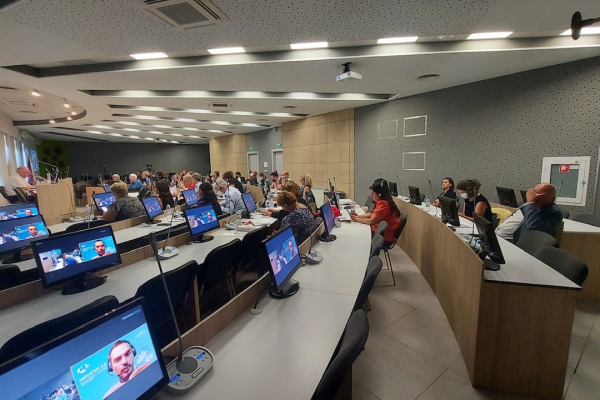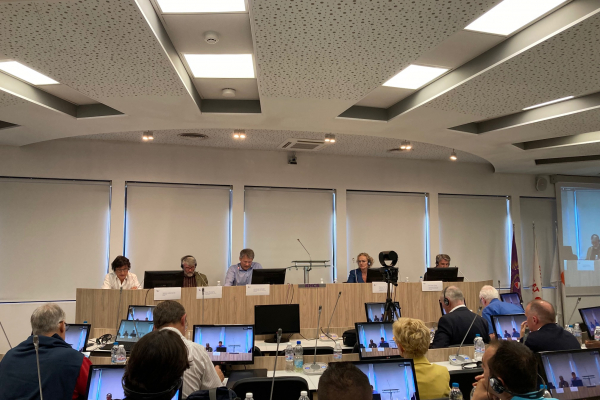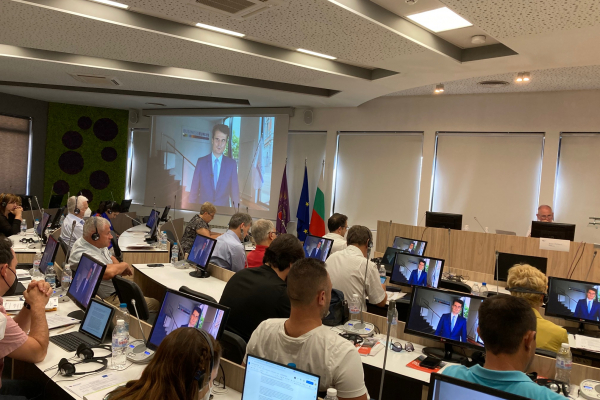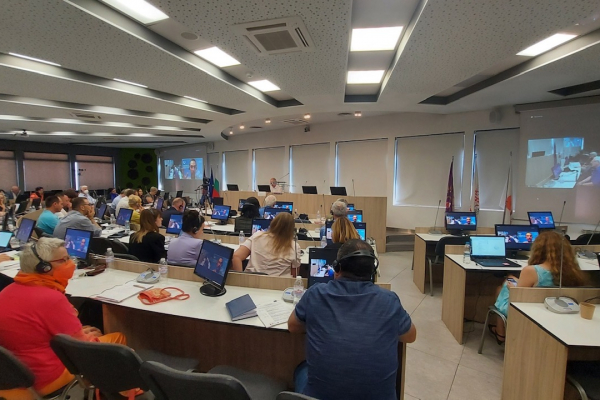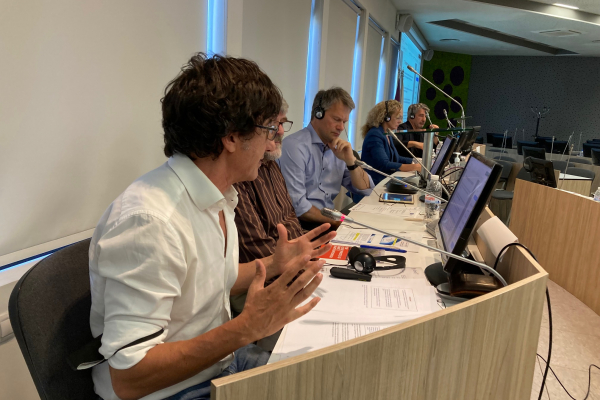The Final Conference of the project took place on 14 July in Sofia with 78 participants. In spite the reluctance of invitees to come to Sofia in July, the use of new technologies to develop a ‘hybrid’ event, with inputs through video and zoom platforms (an issue very relevant to the objectives of the project!), worked seamlessly and without any difficulties.
The President of CITUB, Plamen Dimitrov, and Stoyan Stavrev, Member of the KRIB (Confederation of Employers and Industrialists in Bulgaria) Advisory Council, welcomed delegates to this final conference and, Mr Stavrev, in particular, welcomed the focus on democracy at work saying that the DIRECT 2 project findings are useful in promoting greater workplace involvement.
The work of the project partners included an assessment of national policies to direct participation, in particular with regard to the introduction of new technologies and the digitalisation of workplaces in the six countries. The six participating EU Member States represent a range of different industrial contexts, different workplace cultures and, indeed, different legal systems. The research culminated in a detailed examination of the project objectives through twelve enterprise-level good practice case study examples. These enterprises employed an estimated 22,000 to 23,000 workers across a range of business sectors.
Panel 2, what we could call the ‘political panel’, with contributions from the ETUC (Esther Lynch), BusinessEurope (Maxime Cerutti), DG Research and Innovation, European Commission (Liviu Stirbat) and the International Trade Union Confederation (Sharan Burrow), all acknowledged the importance of the issues addressed by the project, which were identified by the project partners four years ago.
For example, Liviu Stirbat showed how important this project fits with the work of his area of responsibility (Unit Industry 5.0) and the ideas emerging from the project will take this work further. Esther Lynch and Maxime Cerutti saw a synergy with the new TransFormWork project and the implementation of the European Social Partners’ Framework Agreement on Digitalisation. Ms Lynch outlined a number of possible follow-up areas for further research. Also, in her address to the conference Sharan Borrow said that the findings of the project were also relevant to global workplace developments.
In Panel 3 two of the case studies from the twelve enterprise case studies were presented to demonstrate good examples of how direct participation can contribute to the effective introduction of new technologies and changes to work practices. A number of important points arising from the project were highlighted, for example:
- In Italy tax incentive for enterprises are in place to incentivise increased productivity and this can be a way to get managers to introduce direct participation arrangements into their enterprises (Salvo Leonardi)
- Direct participation – called workplace innovation by the IDEAS Institute - is a ‘proven technique’ for improving workplace relations, increasing commitment and as a problem solving tool for enterprises in the process of change (Tony Murphy)
The third case study presentation was on ENDESA, the Spanish energy company (Ricardo Juan Sarrano Roche and Maria Del Roser Medina Garrido). This was not one of the project case studies, never-the-less it was of particular interest for me, as I worked for over 20 years for the Irish State-owned electricity company, the ESB, and it was very interesting to learn about the Spanish equivalent. Electricity and, indeed, the whole energy sector, are at the forefront of the providing renewable energy to deal with the climate crisis, consequently, it is also at the forefront of developing and implementing new technologies.
There were two very relevant online presentations in Panel 4 from Sara Riso, Research Manager, EUROFOUND, and Aida Ponce Del Castillo, Senior Researcher, ETUI. Sara outlined the work of EUROFOUND on the topic of technology and work and mentioned a number of publications that are relevant to the focus of the DIRECT 2 project. These publications could point the way for a new project submission to the European Commission possibly looking at the challenges of workplace monitoring and remote working.
Aida outlined the challenges of the ‘ethics and legal responsibilities’ for workers and trade unions that goes with workplace digitalisation and, also, the challenges for enterprises, especially SMEs, is implementing technology change while continuing to keep production going, fulfilling orders and supplying customers.
Presentation
- Ina Atanasova
- Ekaterina Ribarova
- Salvo Leonardi
- Tony Murphy
- Pedro Chaves
- Aida Ponce Del Castillo
- Liviu Stirbat
- Roser Medina Garrido

